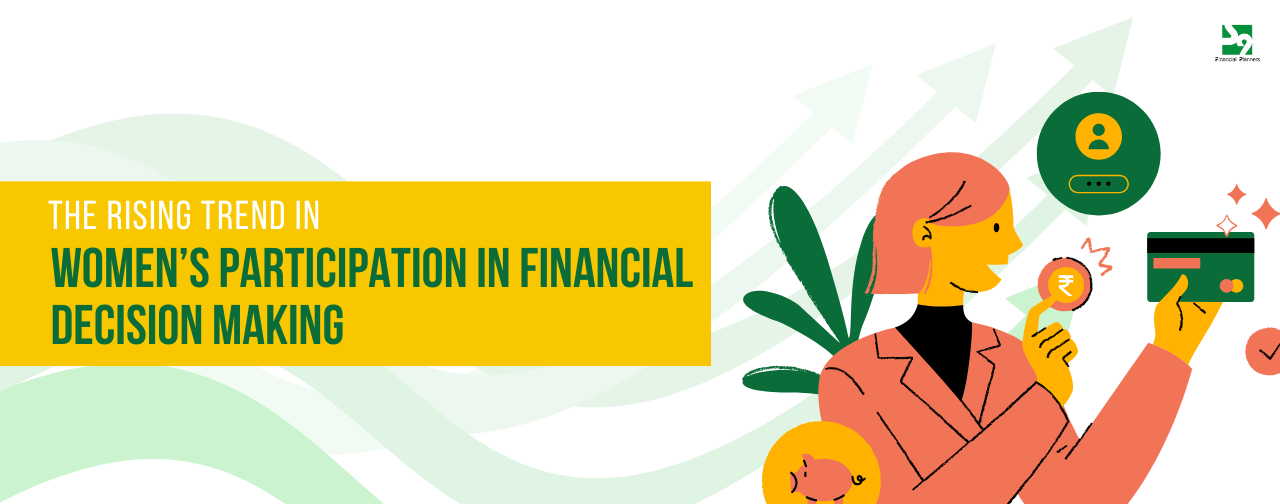The rising trend in women’s participation in financial decision making
With over a decade of experience in personal finance, I’ve had the privilege of working closely with women across India. And, I’m glad to share that what I’ve witnessed is nothing short of a revolution. When it comes to managing money, women in India are rewriting the rules. The space of personal finance, which was once dominated by men, is seeing women not only participating in financial decisions but thriving in the field.
I’ve witnessed women evolve from being hesitant participants to confident decision-makers, challenging the long-standing patriarchal norms and redefining what financial independence looks like.
Through conducting investor Awareness Programs I’ve had a front-row seat to this transformation. I still remember the early days when in a room full of attendees there would be around 30 women out of whom only 2 said they handled their finances independently. Fast forward just 3-4 years, the shift is remarkable. It’s heartening to see nearly 95% of women take full charge of their finances.
Women’s Participation in Financial Decision
Talking about the data, 98% of salaried and self-employed Indian women actively participate in long-term family decision-making. Even more encouragingly, 47% of them now make independent financial decisions—a true testament to their growing autonomy. The data completely backs up what I’ve witnessed firsthand.
While we celebrate these positive changes, we must also acknowledge the challenges women had to face due to societal norms. For generations, financial empowerment for women has been hindered by deep-rooted patriarchy and lingering misogynist mindsets. The societal pressure tied to labels like “Alpha male” or “Alpha female” and the stress associated with Type A personalities has only added to the weight women often carry in their financial journeys. It’s truly inspiring how women, despite all these challenges, have broken the traditional norms to claim their much-deserved financial independence.
With the growing financial independence, we can clearly see the growing involvement of women in the investment world. Interestingly, there remains a notable gap when it comes to direct investments in the stock market or mutual funds. Surveys have revealed that women in India predominantly choose traditional investment avenues such as gold, Fixed deposits, and provident funds. This gap highlights the untapped potential of women investors.
When I assess the current investment portfolios of my women clients, I often notice certain overlooked aspects that are critical for financial well-being. These gaps, if addressed, can significantly enhance their financial independence and security.
Here are some key considerations that are frequently missed, as observed in the investments and women’s participation in financial decisions:
Insurance Awareness
In India, many women often overlook basic insurance needs, viewing traditional policies more as investments than financial safeguards. It is essential for women to differentiate between the two and ensure comprehensive coverage for financial security. For example, a woman in India may prioritize purchasing a life insurance policy not only to secure her family’s future but also to protect her children’s education funds in case of unforeseen events. By choosing the right insurance policies, they can protect their family’s financial well-being and ensure stability during challenging times.
Financial Goal Planning
Women often focus on achieving financial goals but may overlook effectively categorizing them into short-term and long-term aspirations. This clarity is vital for success. Take, for example, a working woman in India who dreams of starting her own business but neglects to set aside dedicated funds for it. By clearly defining and prioritizing financial objectives—whether it’s purchasing a home or funding education—women can create a robust roadmap that aligns with their ambitions and ensures long-term financial independence.
Women Owning a Home
Buying a home is a milestone and needs careful planning. Key factors include location, possession timelines, and how they affect other financial goals. For example, a woman may need to balance the location she likes with the distance to her workplace. By including homeownership in her overall financial plan, she can make better decisions. This ensures financial stability and supports her family’s future growth.
Current inflation awareness
Inflation is often underestimated when planning investments, especially for long-term goals like education. For example, consider a woman diligently saving for her child’s higher education but overlooking how rising inflation rates could erode her savings’ value. Factoring inflation into financial planning helps women make smarter investment choices and secures their ability to meet future expenses with confidence.
Financial Planning Services
Managing finances can feel overwhelming, which is why professional guidance is so valuable. In India, women often rely on advice from senior family members or male relatives, overlooking the benefits of consulting a financial expert. A financial planner can offer personalized advice on risk tolerance, goal alignment, and contingency planning. For example, a woman considering mutual funds may benefit greatly from professional help in creating a diversified portfolio that matches her goals. Expert assistance not only improves financial literacy but also empowers women to make confident decisions for long-term security.
As a financial expert committed to empowering women in personal finance, I encourage every woman to take completely participate in financial decisions. By making informed choices, taking measured risks, and deepening financial awareness, women can not only secure their and their family’s futures but also play a vital role in driving India’s economic progress.
